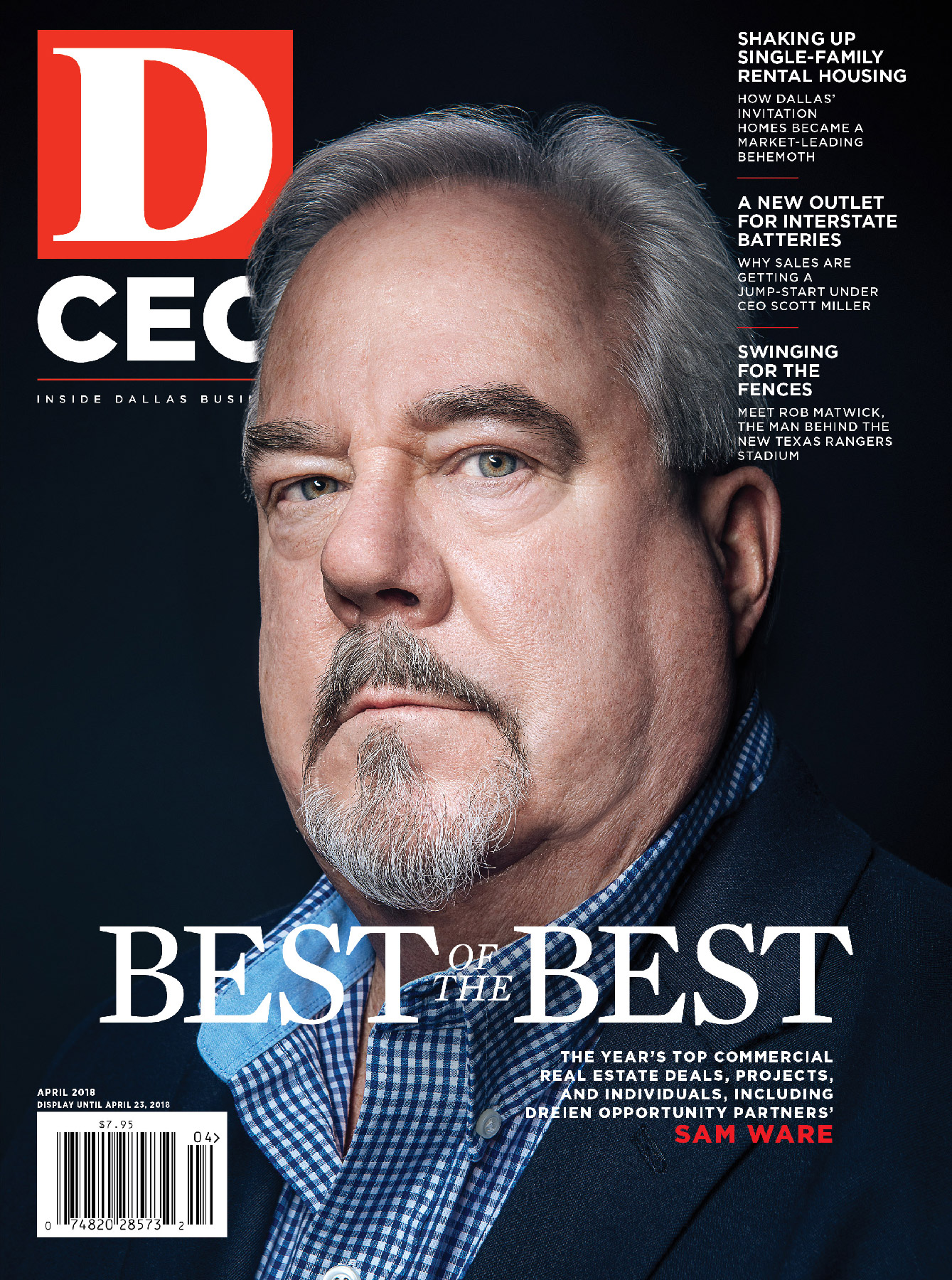In a secluded corner of the Four Seasons Hotel in Palo Alto in California’s Silicon Valley, entrepreneurs and investors regularly sit down for small coffee drinks and big money talks at the Quattro restaurant. After a couple of lattes and a rapid question-and-answer session, deals worth hundreds of thousands, if not millions, of dollars are sealed. It’s a practiced song and dance that both parties execute as though they grew up learning the steps. But in Dallas-Fort Worth, there is no Quattro restaurant equivalent. And when technology entrepreneurs pitch to investors, often it’s more like beginners with two left feet trying to tango. Entrepreneurs try to anticipate what they should say, occasionally tripping over their own feet out of nervousness, a stark contrast from the fluid quick-steppers in the Bay Area.
“The entrepreneur walks in … and it’s almost like two bots talking to each other,” Anurag Jain, managing partner of Dallas venture capital firm Perot Jain, says of conversations at the Quattro. “The entrepreneur and investor know exactly what to communicate to each other. We are not there yet.”
Although no one expects the DFW entrepreneurial ecosystem to completely mimic that of Silicon Valley—mostly because both communities have different strengths and characteristics—there’s a lot the local investment community could do to get on the same playing field as the Bay Area. After all, DFW once was home two decades ago to the esteemed 16th Floor, a hotspot at the Galleria Dallas for venture capital firms like Sevin Rosen Funds and Covera Ventures. To get back there, it’ll take some time, concerted effort from various parties, education, and some big bucks—dough that’s already here.
A robust startup ecosystem like that in the Bay Area needs big, risky investments, and a lot of them. More investment means more innovation, and more innovation breeds massive game changers like the Facebooks, Googles, and Amazons of the world. In DFW, a healthier startup community could easily evolve into corporate innovation, with big Fortune 500s scooping up developments from entrepreneurs. It also could mean more talent and lead to more money, which starts the cycle all over again.
Though there are currently no local hotspots where deals get done, in the past few years the region’s options for tech investment have grown. Family offices and small venture capital firms have opened their doors to early-stage investments. Groups like Perot Jain, Interlock Partners, Hunt Technology Ventures, and Deep Space Ventures have focused their funds on tech startups. And newcomers like Intellis Capital and JF2 Capital have joined the game after seeing activity kick up in the region. That’s not to mention the area’s countless angels, incubators, accelerators, and private investors, many of whom keep their deals on the down-low.
Investment activity is only expected to ramp up. “As family offices are turning over … you have this younger generation coming in saying, ‘Let’s do some venture,’” says Kevin Vela, founder of Blossom Street Ventures and managing partner at Vela Wood, which has a focus on venture capital. Trey Bowles, co-founder and CEO of the Dallas Entrepreneur Center, echoes this view. “When you see the leadership of the family offices get younger, you see more diversification into tech,” he says.
Trouble Finding Funding
While more investors appear to have interest in technology deals, DFW is nowhere near where it should be. Part of the problem is a lack of resources. Entrepreneurs don’t know where to go once they’re ready to raise capital and, if they’re lucky enough to find the right investor, they often don’t know how to handle the conversation.
Lance Crosby has had a fair amount of experience raising capital in and outside of Dallas. He started back in 2000, when he worked at a startup called The Planet, and learned more after launching SoftLayer, which eventually sold to IBM for $2 billion, and most recently StackPath, which entered the market with $150 million in investment.
“I would say it’s beyond extremely difficult,” Crosby says about raising capital in North Texas. “As far as I know, no one has ever put together a list of potential VCs or seed money or even PE. … In Dallas what I found was, VCs or family offices—most of them were oil and gas-focused, or in traditional manufacturing, and things like that. … None of these guys knew anything about technology, and a lot of them were just terrified by the dot-com bust. It’s not like they were lining up to make bets on technology.”
Adds Vela: “We’re just behind on the investor risk tolerance life cycle.”
Most of Crosby’s money has come from the Bay Area, New York, and Boston. “I went out and said, “OK, who are the top 25 largest VCs in North America?’” he says, noting that local investors don’t pop up in this type of research.
To show up on the radar, the local investment community will have to make bigger bets and make them more often. “If these [local] VCs are $10 million to $20 million total, they’re going to be making tiny bets, like $500,000, because they have to be diversified and survive failure,” Crosby says. “ABRY [Partners, a Boston-based PE firm] is a $2.5 billion fund and has the option to go to $4 billion. They have the opposite problem. They don’t like to write checks under $100 million because then there’d be too many firms to manage.”
Larger funds can bet bigger across a wider portfolio. “A lot of people on the West Coast will make a bunch of investments and spread it across maybe 20 to 30 investments,” says Ryan Roberts, partner at Roberts Foster LLP, who represents startups and VCs. “They understand 10 are not going to to work out, but [there is] maybe just one that makes up the return.” On top of that, financials are the most important piece of due diligence here, says Crosby. In the Bay Area, by contrast, the “idea” is paramount, and finances often come last.
Baby Steps
Raising money in DFW isn’t impossible, though. And though capital is much more available in the Bay Area, one thing is true for both markets: Startups have to have a well-developed idea and strong business plan to get funding.
Alex Doubet, founder and CEO of Door, has raised $13.6 million almost entirely from Dallas investors for his residential real estate tech company. “A lot of the investors we talk to get a little bit of sticker shock,” he says, adding that their valuations are based on revenue multiples and not EBITDA. “But that hasn’t stopped us from raising money.”
“From what I’ve seen as an investor, many high-quality Dallas companies are getting funded here in Dallas, and don’t need to leave the state to raise capital,” says Aaron Pierce, managing director of J2F Capital. “If entrepreneurs have a growing business that is executing on its plan to disrupt an industry, or is generating real traction in a growing market, getting funded in Dallas … should be very achievable.”
While this is true, that doesn’t mean startups should limit themselves to DFW. Jain says startups should only limit their reach based on investors’ expertise. So, if there’s a fund investing in artificial intelligence in the Bay Area, it would be most helpful for an AI startup to go there. But a conversation with local investors is a good way to begin gathering feedback, Jain says. Bowles agrees: “We should never tell people to only invest in Dallas or Texas or that you should only get money in Dallas and Texas. But it’s a good place to start.”
Crosby believes local entrepreneurs would benefit from visiting the Bay Area. They’d witness seasoned pitches, might be inspired to think bigger, and could test the strength of their pitches: “If you can even get an appointment with [big Bay Area investors], you’re doing something right.”
Crosby says he’s considering launching his own local billion-dollar fund in Dallas with Chris MacFarland, CEO of Masergy, which sold to Berkshire Partners in a deal worth $900 million in 2016. MacFarland and Crosby would provide mentorship for startups to rise to the occasion and provide large enough investments to fuel the momentum, Crosby says.
Once the region has enough investors making tech bets, deals will close faster, Roberts of Roberts Foster says. “We’re getting close to where there will actually be enough investors that there will be competition for deals,” he says. “Only then is when we become an efficient investment ecosystem.”
When that happens, we’ll truly deserve the name Silicon Prairie.






